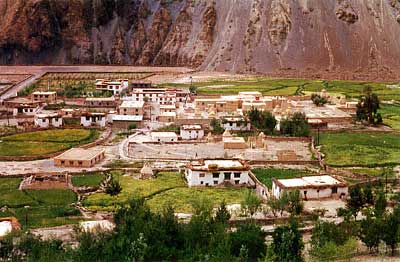|
History
 The first inhabitants of Lahul and Spiti were a mixture of the
proto-Tibetan Khampa and Indo-Aryan nomadic populations, who
eventually intermarried and settled down.
Lahul and Spiti came under the influence of Tibet sometime during
the 9th and 10th century. With the downfall of the Tibetan
administration in Lhasa, Ladakh eventually took political control of
Lahul and Spiti until the early 17th century.
The Pattan Valley, Chamba and Upper Lahul came under the control of
Raja Biddhi Singh from Kullu in the years 1672 to 1688. Other Rajas
conquered Lahul and Spiti in subsequent invasions. Although Spiti
came under the control of Ladakh from the 18th century until 1846,
the governor only held loose control over Spiti. It was therefore,
in practice, controlled by the Wazir and Nono.
Spiti came under the rule of the Dorga in 1846, while Lahul came
under the control of the British East India Company. This occurred
with the help of an appointed Wazir, led by the Kolong family. This
pattern continued until World War I, when it was subsequently
abolished.
Owing to their cultural and ethnic similarities and close proximity
to each other, Lahul and Spiti were merged to form a single district
in 1960, with headquarters re-established at Keylong. |

